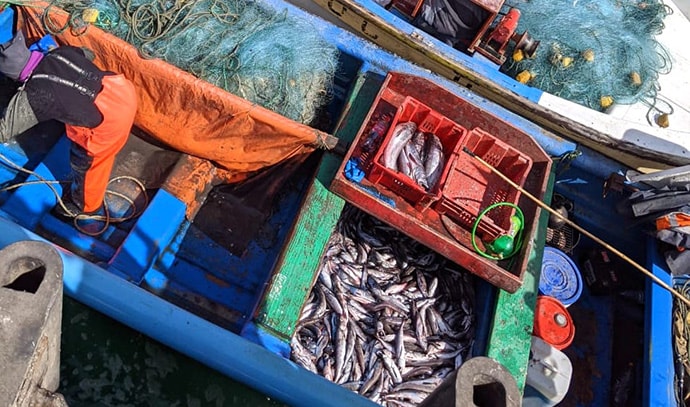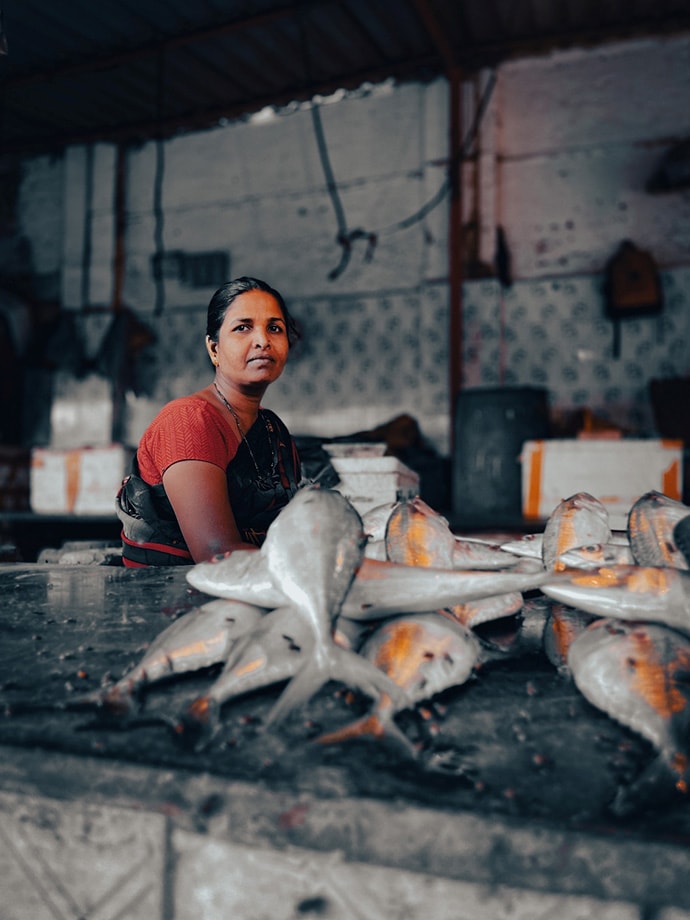By: Julie Budkowski, Director of Global operations, Future of Fish

Photo: Future of Fish
Empowering sustainable fisheries is as much an effort to address food security and livelihoods as it is about environmental protection. Globally, over 3 billion people rely on fish as their primary source of protein. In many of the world’s least developed countries, where fish is often the cheapest source of protein, it accounts for over 50%. Fish is an essential food.
Today, overfishing, climate change, and supply chain waste have depleted the ocean’s natural resources. The precarious nature of wild fish stocks has major implications for nutrition and global food security: an estimated 1 in 10 people face malnutrition due to declining fish catches. And, as with so many global issues, the effects of this diminishing resource will not be felt equally around the world. The loss of fish stocks as a source of food will disproportionately affect those in lower socio-economic brackets in developing nations — especially in equatorial regions — who tend to be most reliant on seafood for nutrition. The effects will be felt more quickly in these regions as well, due to the potential impacts of climate change on fish migration patterns away from warmer areas.
Despite the challenges, we can’t afford to give up on fish. Seafood is an excellent food source that contributes to a healthy, nutritious diet with a 150g portion providing about 50-60% of the daily protein requirement for an adult. The fatty acids in fish are optimal for supporting brain development in young children. Beyond the fats and proteins, the nutrients in fish provide additional public health benefits, such as fighting micronutrient deficiencies, a problem affecting approximately 2 million people globally in resource-poor communities. Managed sustainably, wild fisheries are uniquely poised as a resource to help improve nutrition in countries that need it most, helping to meet UN’s Sustainable Development Goal (SDG) 2: Zero Hunger, as well as support SDG 12: Responsible Production and Consumption.

Photo: Shamoil326/Unsplash
Overfishing, inefficient and inequitable supply chains and markets, and climate change are human-caused problems that require human-focused solutions. At Future of Fish, we partner with coastal communities to help secure the vital food source that wild fish provides for today, and for generations to come. Our work supports co-creation and implementation of the tools and resources coastal communities need in order to innovate, build resilience, and ultimately overcome these challenges while being stewards of a healthy ocean ecosystem. Because the future of fish isn’t about fish…it’s about people.
Stay connected with Future of Fish and learn how we are working with our partners to support sustainable ocean economies and secure this vital resource for the communities that rely on them.
Sources / Read more:
http://www.fao.org/fisheries/en/
http://www.fao.org/state-of-fisheries-aquaculture
http://www.fao.org/in-action/globefish/fishery-information/resource-detail/en/c/1027691/
https://www.un.org/sustainabledevelopment/wp-content/uploads/2017/05/Ocean-fact-sheet-package.pdf
https://www.sciencedirect.com/science/article/pii/S2211912413000515